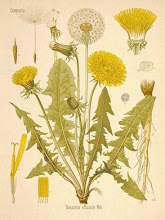
Oh, I love Canadian literature. There have really been some extraordinary Canadian authors out there.
I for one, have never been one to love Leonard Cohen's deep, frightening tones backed by feeble, trapped female singers BUT I do love the way he writes. This was my first venture into his literary world, I have not read his poetry, but this was a very good read.
First of all, I loved the subject matter. I have been reading a lot of Montreal Canadian writing this year, seeing as I will be living there next year, and knowing Montreal as a place made the story so much more visual.
Leonard Cohen writes in a very thoughtful way and I feel that the way he described people says a lot about how he looks a people. The transition the main character goes through from childhood to adulthood (said to be semi-autobiographical) is just so smooth yet interrupted by small dramatic hiccups. The personalities were very strong in this book and easy to envision.
Even though this was a novel, there is something noticeably lyrical and poetic about the writing.
"Friendship? A friendship between a man and a woman which is not based on sex is either hypocrisy or masochism. When I see a woman's face transformed by the orgasm we have reached together, then I know we've met. Anything else is fiction. That's the vocabulary we speak today. It's the only language left."
"It was not that things decay, that the works of men are ephemeral, he believed he saw deeper than that. The things themselves were decay, the works themselves were corruption, the monuments were made of worms. Perhaps she was his comrade in the vision, in the knowledge of strangerhood."
"When they were awake there were too many possibilities, egos to encounter, faces to interpret, worlds to enter. The variety was confusing. It was hard enough to meet one other person. A community is an alibi for the failure of individual love."
"Mozart came loud over the PA, sewing together everything that Breavman observed. It wore, it married the two figures bending over the records, whatever the music touched, child trapped in London Bridge, mountain-top dissolving in mist, empty swing tocking like a pendulum, the row of glistening red canoes, the players clustered underneath the basket, leaping for the ball like a stroboscopic photo of a splashing drop of water- whatever it touched was frozen in an immense tapestry. He was in it, a figure by a railing."
"After a heavy snow we would to into a back yard with a few of our friends. The expanse of snow would be white and unbroken. Bertha was the spinner. You held her hands while she turned on her heels, you circled her until your feet left the ground. Then she let go and you flew over the snow. You remained still in whatever position you landed. When everyone had been flung in this fashion into the fresh snow, the beautiful part of the game began. You stood up carefully, taking great pains not to disturb the impression you had made. Now the comparisons. Of course you would have done your best to land in some crazy position, arms and legs sticking out. Then we walked away, leaving a lovely white field of blossom-like shapes with footprint stems."





